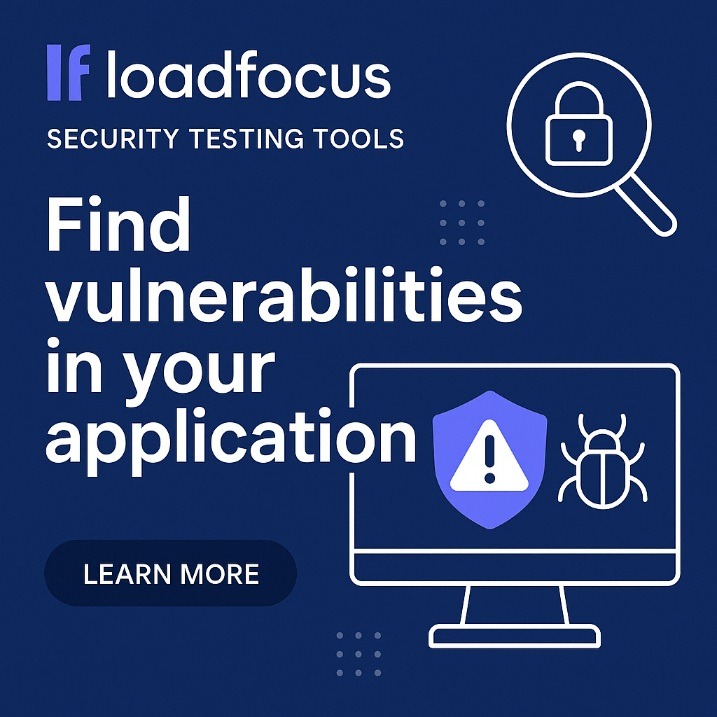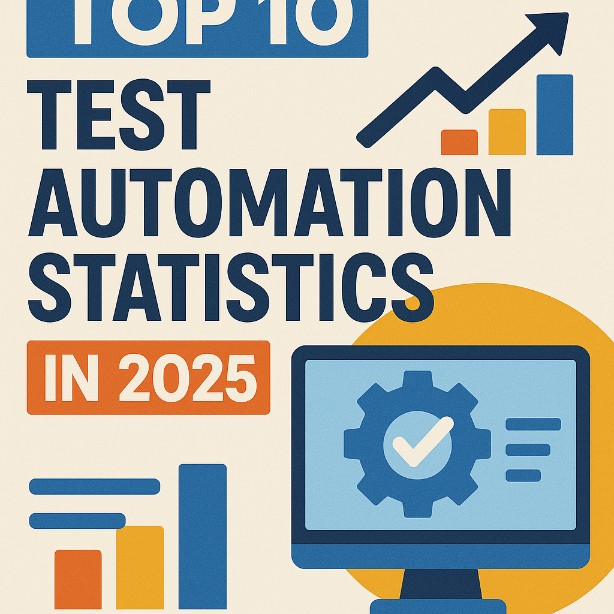Blockchain applications are transforming industries, but ensuring their performance, security, and scalability is more critical than ever. With blockchain adoption on the rise—recent surveys indicate that over 70% of projects now integrate rigorous testing protocols and 65% of organizations prioritize security and performance testing—robust testing tools have become essential for developers and QA professionals alike.
In this article, we explore the top 5 tools for blockchain app testing. We’ll compare their key features, discuss use cases, and answer common questions on how to test blockchain applications. Throughout the article, you’ll also find links to useful load testing, website speed test, API monitoring, page speed monitoring, and JMeter load testing pages from LoadFocus.com—making it easier to integrate these best practices into your workflow.
Is Your Infrastructure Ready for Global Traffic Spikes?
Unexpected load surges can disrupt your services. With LoadFocus’s cutting-edge Load Testing solutions, simulate real-world traffic from multiple global locations in a single test. Our advanced engine dynamically upscales and downscales virtual users in real time, delivering comprehensive reports that empower you to identify and resolve performance bottlenecks before they affect your users.
Comparative Summary of Blockchain App Testing Tools
| Tool | Best For | Key Features | Use Case |
|---|---|---|---|
| LoadFocus | Performance & Load Testing | Real-time load simulation, detailed reporting, API monitoring, integration with website speed test | Scalable blockchain app performance testing |
| Truffle Suite | Smart Contract Testing | Comprehensive testing framework, automated smart contract compilation, built-in blockchain simulator | Ethereum dApp development |
| Ganache | Local Blockchain Simulation | Instant local blockchain setup, deterministic testing, advanced logging | Local testing of smart contracts |
| Hardhat | Development & Testing Environment | Solidity debugging, network management, plugin ecosystem, integrated testing support | Modern Ethereum app development |
| MythX | Security Analysis | Automated vulnerability detection, CI/CD integration, detailed security reports | Smart contract security testing |
The 5 Best Tools for Blockchain App Testing
1. LoadFocus
Category: Performance & Load Testing
Overview:
LoadFocus is a robust platform designed to simulate high traffic and evaluate the performance of blockchain applications under stress. It stands out by offering detailed real-time reports and seamless integration with features like load testing and API monitoring. Additionally, its support for website speed test allows developers to optimize user experience effectively.
Key Features:
Think your website can handle a traffic spike?
Fair enough, but why leave it to chance? Uncover your website’s true limits with LoadFocus’s cloud-based Load Testing for Web Apps, Websites, and APIs. Avoid the risk of costly downtimes and missed opportunities—find out before your users do!
- Real-time load simulation
- Detailed performance reporting
- Integration with API monitoring tools
- Scalable test environments
- Support for CI/CD pipelines
Pros:
- Comprehensive performance insights
- User-friendly dashboard
- Scalable for large-scale applications
- Robust reporting capabilities
Cons:
- May require additional configuration for niche blockchain setups
- Pricing may be complex for smaller projects
Use Case:
Ideal for stress-testing blockchain applications to ensure they perform reliably under high traffic conditions.
Pricing:
Offers a pay-as-you-go model with a free trial option. For detailed pricing information, visit the pricing page.
LoadFocus is an all-in-one Cloud Testing Platform for Websites and APIs for Load Testing, Apache JMeter Load Testing, Page Speed Monitoring and API Monitoring!
2. Truffle Suite
Category: Smart Contract Testing
Overview:
Truffle Suite is a popular development environment tailored for Ethereum blockchain applications. It provides an all-in-one framework for smart contract compilation, deployment, and testing. With its built-in blockchain simulator and debugging tools, Truffle Suite simplifies the process of validating smart contract logic and performance.
Key Features:
- Automated smart contract compilation
- Integrated blockchain simulator
- Comprehensive testing framework
- Deployment management and debugging tools
Pros:
- Extensive toolset for Ethereum development
- Strong community support and documentation
- Streamlined testing process
Cons:
- Primarily focused on Ethereum, limiting use with other blockchains
- May be complex for beginners
Use Case:
Best suited for developing and testing Ethereum dApps and smart contracts.
Pricing:
Truffle Suite is open-source, with premium support options available.
3. Ganache
Category: Local Blockchain Simulation
Overview:
Ganache provides a personal blockchain environment for rapid development and testing of smart contracts. As part of the Truffle Suite ecosystem, Ganache offers a deterministic blockchain simulation that helps developers identify issues quickly and iterate their designs with confidence.
Key Features:
- Instant local blockchain setup
- Deterministic transaction processing
- Advanced logging and debugging
- Seamless integration with Truffle Suite
Pros:
- Fast setup and easy to use
- Reliable simulation for testing purposes
- Provides instant feedback during development
Cons:
- Limited to local environments
- Not designed for performance load testing
Use Case:
Perfect for developers who need a quick and reliable local blockchain for testing smart contracts before deployment.
Pricing:
Free to use.
4. Hardhat
Category: Development & Testing Environment
Overview:
Hardhat is an Ethereum development environment that emphasizes testing and debugging smart contracts. With a flexible plugin system and powerful Solidity debugging tools, Hardhat caters to modern development needs by supporting complex project workflows and network management.
Key Features:
- Flexible plugin ecosystem
- Powerful Solidity debugging
- Integrated network management
- Comprehensive testing support
Pros:
- Modern toolchain with active community support
- Excellent debugging capabilities
- Highly customizable for complex projects
Cons:
- Steeper learning curve for new developers
- Primarily focused on Ethereum development
Use Case:
Ideal for developers building and testing sophisticated Ethereum applications that require detailed debugging and network simulation.
Pricing:
Hardhat is open-source, with enterprise-level integrations available.
5. MythX
Category: Security Analysis
Overview:
MythX is an advanced security analysis tool designed to automatically scan smart contracts for vulnerabilities. By integrating with CI/CD pipelines, MythX helps developers ensure that their blockchain applications are secure from potential exploits and vulnerabilities.
Key Features:
- Automated vulnerability detection
- Seamless CI/CD integration
- Detailed security reporting
- Continuous monitoring of smart contracts
Pros:
- High accuracy in detecting vulnerabilities
- Easy integration into development workflows
- Enhances overall security posture
Cons:
- May generate false positives that require manual review
- Advanced features are available only under subscription plans
Use Case:
Essential for ensuring the security and integrity of smart contracts in blockchain applications.
Pricing:
Subscription-based, with various tiers to accommodate different levels of usage.
Recent Trends and Statistics in Blockchain App Testing
Blockchain technology continues to evolve rapidly. Recent industry surveys reveal that more than 70% of blockchain projects now integrate comprehensive testing protocols, while organizations report a 40% increase in the adoption of specialized testing tools over the past year. With performance and security testing becoming top priorities, tools that offer JMeter load testing and advanced monitoring are gaining significant traction.
FAQs
How to test blockchain applications?
Testing blockchain applications involves a combination of unit tests for smart contracts, integration tests for decentralized networks, and load tests to assess performance under high traffic. Tools like Truffle Suite, Hardhat, and LoadFocus enable developers to simulate blockchain environments and conduct comprehensive testing.
Can blockchain be used in software testing?
Yes. Blockchain technology can enhance software testing by providing immutable, transparent records of test results. Its decentralized nature also supports automated verification processes, thereby increasing trust and reliability in test outcomes.
What is QA in blockchain?
QA in blockchain involves a range of quality assurance practices tailored for decentralized applications. It includes verifying smart contract functionality, ensuring data integrity, and monitoring network performance through specialized testing frameworks.
What are the 4 types of blockchain?
The four main types of blockchain are:
- Public: Open and decentralized, accessible by anyone.
- Private: Restricted access, controlled by a single organization.
- Consortium: A semi-decentralized network managed by a group of organizations.
- Hybrid: Combines elements of both public and private blockchains to meet specific business needs.
How do I verify my blockchain app?
Verification involves thorough testing of smart contract code, simulating transactions on test networks, and using load testing tools (such as LoadFocus) to assess performance under stress. Continuous integration and automated testing are also key to ensuring a secure and reliable blockchain app.
What is the framework for blockchain testing?
A robust blockchain testing framework typically includes:
- Unit testing for individual smart contracts
- Integration testing for decentralized network interactions
- Security testing for vulnerability detection
- Load testing for performance validation
Tools like Truffle Suite, Hardhat, and LoadFocus form the backbone of such a framework.




